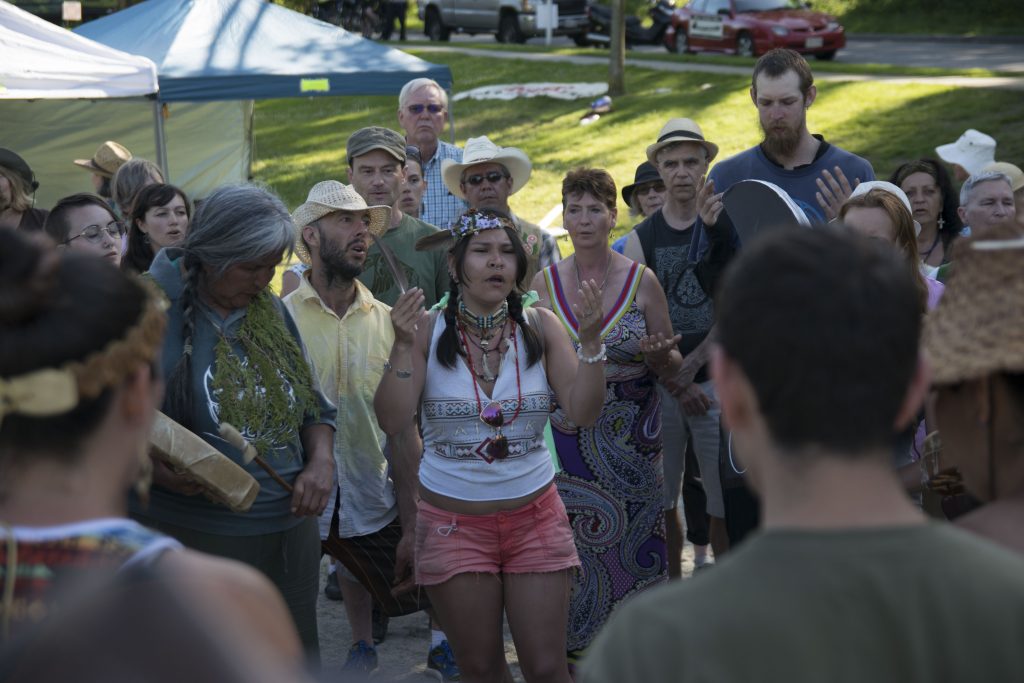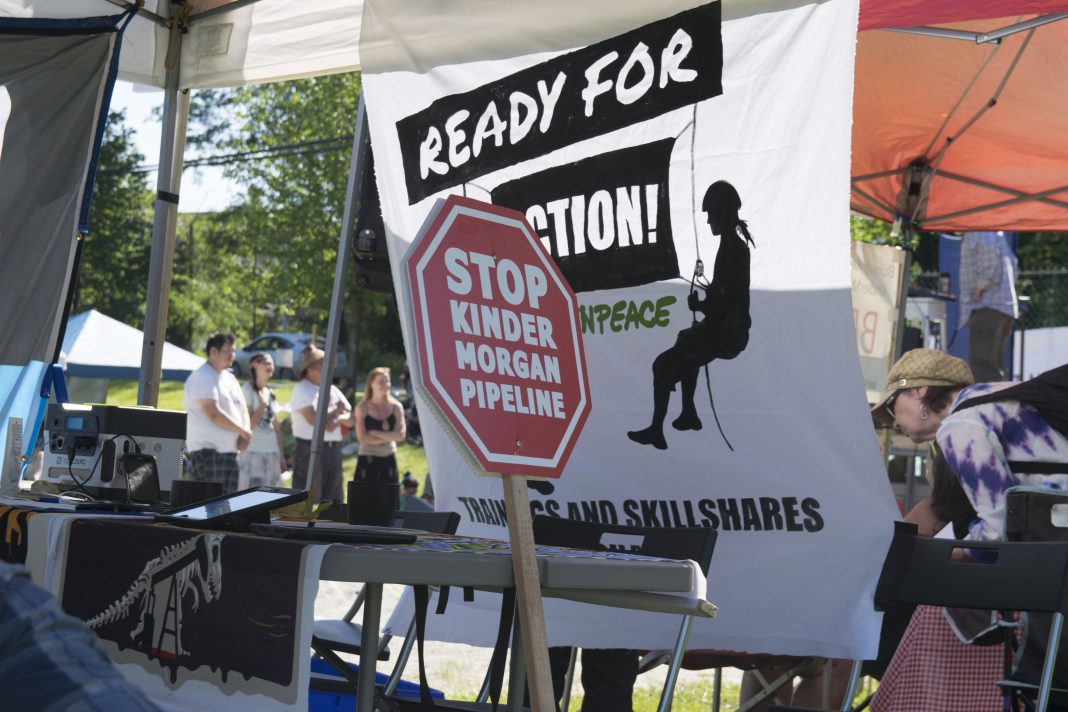Westridge Park at the base of Burnaby Mountain saw the conclusion of a pilgrimage of protesters against the expansion of the Kinder Morgan Trans Mountain pipeline on May 28.
The Walk for the Salish Sea started in Victoria, with hundreds of protesters marching 75 km over four days to the Kinder Morgan Westridge Marine Terminal in Burnaby to rally against what they believe is a disastrous project that will severely damage the environment.
Kinder Morgan has received federal and provincial government approval to expand the existing Trans Mountain pipeline that terminates in Burnaby. Sunday’s walk is the latest in a long history of protests against the proposed pipeline expansion.
“This has been pretty heartening,” SFU English professor Stephen Collis told The Peak in between his announcer duties at the protest. Over the background of a band playing for the 300 protesters at the event, he commented on the size of the crowd, noting that “there are a lot of people here that I’ve never seen before.”
In 2014, Collis and other protesters were sued by Kinder Morgan for obstructing a worksite. For his political activism he was awarded the Nora and Ted Sterling Prize in Support of Controversy alongside fellow SFU professor Lynne Quarmby the following year.
Audrey Siegl, of Musqueam First Nation, explained that the attendance at the protest showed that “there is an interest in the public to know about this [issue].” She elaborated that events like the Walk for the Salish Sea were about “people [being] awakened in the most gentle, harmless way” and finding a solution for extractive industries that still provides jobs and economic stability.

The Kinder Morgan Trans Mountain pipeline expansion project would nearly triple its capacity, allowing it to transport up to 890,000 barrels of oil sands products from Edmonton to the Westridge Marine Terminal. Reports on the expansion show that tanker traffic in the Burrard Inlet will increase sevenfold, and Indigenous, environmental, and community groups have repeatedly voiced concerns about its safety and environmental risk.
Of particular concern to the SFU community is the proposed expansion of the tank farm currently at the base of Burnaby Mountain. The Burnaby Fire Department released a comprehensive report in 2015 outlining extreme challenges they would face if they had to control a fire at the tank farm.
SFU President Andrew Petter has called this an “unacceptable” safety risk to students, and student groups like the Simon Fraser Student Society and Graduate Student Society have also opposed the project over safety concerns.
The finale of the Walk for the Salish Sea comes just ahead of a major fundraising initiative by Kinder Morgan. After failing to find a partner to share the cost of constructing the pipeline, the company has filed a public offering to sell off shares at low prices. The goal is to raise $1.75 billion ahead of construction, which is set to begin this September.
“The fact that they’re selling so many shares at a relatively low price indicates we’re making headway,” Siegl noted.
The results of the recent provincial election also cast some uncertainty on the fate of the project, as both the BC NDP and the BC Green Party campaigned on their opposition to the expansion. The parties announced on Monday that they have agreed to work together to form a government.
“I don’t think it will [make a difference] at all,” said Siegl about the effect of a change in government on the pipeline. She was emphatic that communities needed to decide the fate of the project for themselves, explaining that she doesn’t believe that “this government is going to do anything in the best interests of First Nations as a whole.”
Collis was also skeptical of putting his hope in the political system. However, both maintained that there was a strong possibility for change. Siegl said that while politics are heavily influenced by corporate money, “it doesn’t mean in the future that it can’t be something different.”
“My hope is [that] the community will raise the funds and that will bring the voices and bodies that will support what the Indigenous communities are going to do,” Collis noted.





[…] Petter has publicly stated that the risks to students’ safety posed by the expansion are “unacceptable,” “significant and deeply concerning.” The university later sent a letter to the federal […]